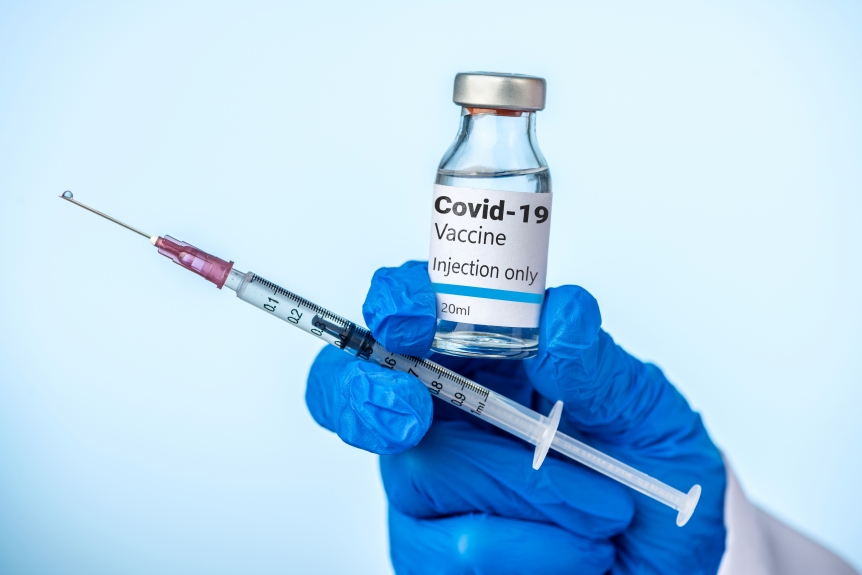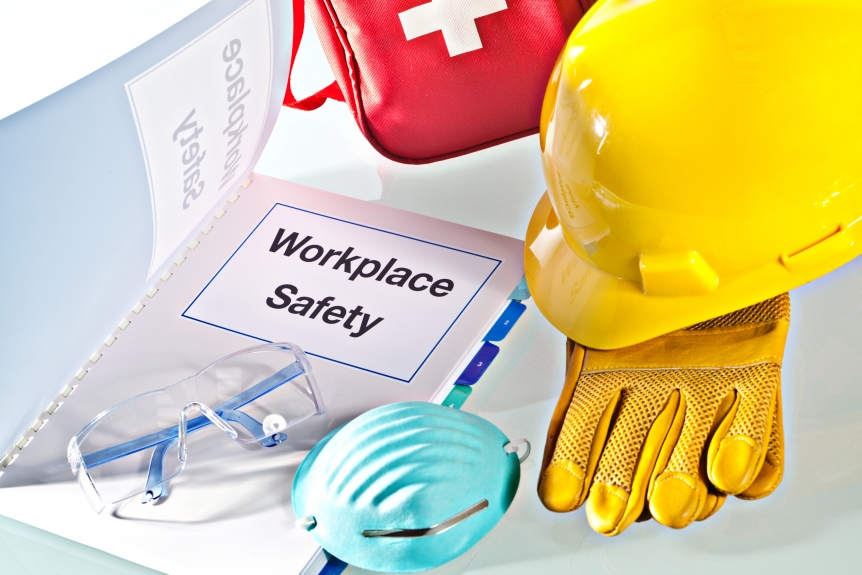OSHA, the Occupational Safety and Health Administration, provides five practices you can implement to keep employees safe during the pandemic. Train workers on safe work practices Maintain social distancing between workers and customers Encourage workers to stay home if they are sick Clean and disinfect work surfaces and equipment Encourage workers to report any safety and health concerns For more information regarding keeping your workers safe during the holidays, contact a member of the Murray Risk Control Team at 717.397.9600.
OSHA’s Enforcement Role for COVID-19
By Timothy W. Braun, Risk Control Specialist OSHA’s role in protecting workers since the start of the COVID-19 Pandemic has been multifaceted. OSHA has and continues to issue helpful guidance documents about COVID-19: how to protect workers; ideas for many work situations; and memos discussing how OSHA will utilize their enforcement capabilities. The traditional OSHA enforcement role is and has been ongoing as well. As of December 4, 2020, OSHA has issued citations stemming from 255 inspections. The penalties for those inspections have amounted to over $3,000,000. Many of these inspections and citations have been at long-term care facilities and various other healthcare establishments. Among the more commonly cited situations related to OSHA regulations are: Inadequacies, or lack of a …
COVID-19 Immunizations and Employee Relations Considerations for Long-term Care Facilities
By Richard L. Hackman, Esq. and Collin T. Keyser, Esq., Saxton & Stump Lawyers and Consultants With the imminent possibility of a COVID-19 vaccine, long-term care facilities must be prepared for staff questions and concerns related to immunization for the virus. A recent Gallup survey indicated that approximately 42% of Americans would decline an approved COVID-19 vaccination. Reasons for declining included: the rushed timeline for development of the vaccine; the desire to wait to confirm the vaccine is safe; no trust in vaccines in general; and the desire to wait to determine the effectiveness of the vaccine. These same concerns as voiced by the general populace most certainly will arise with facility staff, which will require an employer to engage …
Get Ready for Winter Driving
Timothy W. Braun, Risk Control Specialist, offers these winter driving tips and resources. The winter season promises shimmering white landscapes and invigorating outdoor activities. But the season also can bring difficulties that travelers need to be ready for. It’s important that the vehicle, the driver and travelers are prepared for the journey. Snow and ice make for slippery pavement. Stopping distance goes up. Traffic will be slowed by the snowy or icy conditions. Heavy snow or sleet can reduce visibility. Traffic dangers and travel delays might result from obstructions due to snow accumulation, stuck vehicles or vehicles out of control. According to the U.S Department of Transportation, 24 percent of weather-related vehicle crashes occur on snowy, slushy or icy pavement …
Best Practices for a Manufacturing Safety Committee
By Ryland Overly, GSP, Risk Control Consultant Manufacturing facilities that emphasize safety in the workplace are both productive and competitive. A Safety Committee is a good way to instill a culture of safety because both workers and managers can contribute their ideas. KPA provides some best practices for consideration when starting your company’s Safety Committee: Recruit the right Safety Committee members Your members should care about the safety of not only themselves but the safety of everyone they work alongside. You will want employees from all levels of the organization. Note: In PA, a certified safety committee must have a minimum of two employers and two employees. Get organized An effective committee is a well-organized committee. You will want to …
Optimize Ventilation to Reduce COVID-19 Transmission Risk
By Toby Graham, KPA The Occupational Health and Safety Administration (OSHA) released new COVID-19 guidance on ventilation in the workplace. Employers should discuss options for optimizing building ventilation with an HVAC professional. Steps that can be taken include: Encourage workers to stay home if they are sick. Ensure all HVAC systems are fully functional, especially those shut down or operating at reduced capacity during the pandemic. Remove or redirect personal fans to prevent blowing air from one worker to another. Use HVAC system filters with a Minimum Efficiency Reporting Value (MERV) rating of 13 or higher, where feasible. Increase the HVAC system’s outdoor air intake. Open windows or other sources of fresh air where possible. Be sure exhaust air is …
Cyberattackers Weaponizing Google Services
By Kelly Sheridan, Staff Editor, Dark Reading Security researchers have reported an uptick in cyberattackers weaponizing Google services to sneak past defensive tools and steal credentials, credit card details, and other personal information. The Armorblox threat research team today published their analysis of five targeted phishing campaigns they call “the tip of a deep iceberg.” These attacks take advantage of several Google services, including Google Forms, Google Docs, Google Site, and Firebase, Google’s mobile platform for app development. Read more here >>>
Vehicle Hacking: It’s a Thing
By Andrew Blancher, CPCU, Director of Commercial Auto and Emerging Issues at ISO, Verisk Picture a day in the hopefully not-too-distant future when we’re all back to our pre-pandemic routines (Nice, isn’t it?). You’re back in the groove of your morning commute, looking forward to picking up on your audio book as you hop into the driver’s seat and start your truck. But rather than the normal hum of the engine turning over, nothing happens. Well, not nothing. Your media console lights up with an ominous message: “This vehicle has been hijacked. To unlock your truck, please forward five CryptoCoins to the following address.” Continue reading more about a new era of vehicle risk >>>
Workplace Posting Resources
By Timothy W. Braun, Risk Control Specialist Under OSHA (Occupational Safety and Health Administration) and other workplace agencies or laws, legislators and agencies have determined workers have certain rights and that they should be given information regarding those rights. Management also has certain rights that employers and managers need to know, particularly when facing circumstances regarding an injury, claim or need to defend themselves against an allegation. Helpful resource information The agency or government groups requiring postings of workplace rights may cite or fine a business that does not have this information properly displayed. However, most of the required posters are free from the agencies that require them and can be easily downloaded. The following links contain information that businesses …
Manufacturing: Plan for Prevention
By Ryland Overly, GSP, Risk Control Consultant As most of us know, no two manufacturing operations are the same. Some may be similar, but there will always be some variance in the process, whether it be the raw materials, the machines, the setup, or the people working in the organization. Each one of these operations has its hazards that must be dealt with to protect its product, equipment, and people. If these hazards are left unchecked, it could result in a catastrophic loss. The Succeed / KPA safety platform notes that workplace incidents are not only tragic and frequently fatal for workers but also extremely expensive for employers. Between workers’ compensation, legal fees, regulatory penalties, employee turnover, diminished productivity, and …










